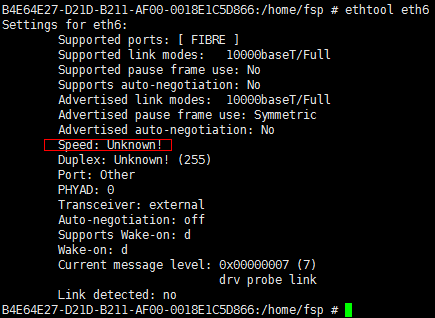|
|
Okay, so I need to understand what the TQQQ tokenized ETF is. Let me start by breaking down the term. I know ETF stands for Exchange-Traded Fund, which is a type of investment fund that tracks indexes, commodities, or other assets and trades on stock exchanges, similar to stocks. The term "tokenized" probably refers to using blockchain tokens to represent shares in the ETF.
TQQQ is a ticker symbol I've heard before. I think it's a leveraged ETF that tracks the Nasdaq-100 index. Leveraged ETFs use financial derivatives and options to amplify the daily performance of their underlying indices. So TQQQ might provide 3x the daily return of the Nasdaq-100. But how does tokenization fit into this?
Tokenized ETFs would mean that instead of holding physical shares or traditional certificates, the ETF shares are represented as digital tokens on a blockchain. This could make trading more efficient, reduce costs, and provide easier access to investors, especially in countries with strict capital controls. But I need to confirm if TQQQ is actually tokenized or if there's a separate tokenized version.
Wait, the user mentioned "TQQQ tokenized ETF." Maybe there's a specific tokenized version of the TQQQ ETF. I should check if ProShares, which manages TQQQ, has created a tokenized version. Alternatively, maybe a different company has issued a tokenized ETF tracking the same index.
I should also consider the differences between traditional ETFs and tokenized ones. Tokenized ETFs can be traded on decentralized exchanges (DEXs) or centralized ones, using cryptocurrencies as settlement. This might offer 24/7 trading and lower transaction fees. However, there might be regulatory challenges since ETFs are typically regulated by agencies like the SEC in the U.S., and tokenized assets might face different regulations.
Another point is settlement. Traditional ETFs settle in T+2 days, but tokenized ETFs can settle almost instantly because they're digital. This reduces the risk of settlement failures. Also, tokenization might enable features like fractional ownership, allowing investors to buy a small percentage of a tokenized ETF share.
But I need to verify if TQQQ itself is tokenized. A quick search in my mind: I recall that ProShares has other tokenized products, but TQQQ is a traditional ETF. Maybe there's a separate token, like TQQQ on Binance or another exchange, but that's not an official ETF. Or perhaps a project has created a tokenized version, but it's not authorized by ProShares.
Also, the risks of tokenized ETFs. Since they're digital, they might be exposed to blockchain-specific risks, like smart contract vulnerabilities or exchange hacks. Plus, the leverage aspect of TQQQ means that daily returns can compound, leading to significant losses over time if the underlying index moves against the ETF.
In summary, the TQQQ tokenized ETF would be a digital representation of the TQQQ ETF, offering the same 3x leveraged exposure to the Nasdaq-100 but with the benefits of tokenization. However, I need to confirm if such a product exists officially or if it's a hypothetical concept. Also, discussing the pros and cons, how it works, and potential use cases would be important.

The TQQQ tokenized ETF represents a digital, blockchain-based version of the traditional ProShares TQQQ ETF, which provides 3x leveraged exposure to the Nasdaq-100 index. Here's a structured overview:
Key Features:
Tokenization:
Shares are represented as digital tokens on a blockchain, enabling efficient trading, reduced settlement times (near-instant), and potential fractional ownership.
Can be traded on decentralized exchanges (DEXs) or centralized platforms, often using cryptocurrencies like Bitcoin or Ethereum.
Leveraged Exposure:
Tracks 3x the daily performance of the Nasdaq-100, amplifying gains but also risks during market downturns due to compounding leverage.
Regulatory Considerations:
Traditional ETFs (like TQQQ) are regulated by entities like the SEC in the U.S. Tokenized ETFs may face evolving regulatory frameworks, potentially requiring compliance with both securities and blockchain regulations.
Benefits:
Efficiency: Faster settlement and lower transaction costs compared to traditional ETFs.
24/7 Trading: Unlike stock exchanges, tokenized ETFs can trade continuously.
Global Accessibility: Easier access for investors in regions with capital restrictions.
Risks and Challenges:
Blockchain-Specific Risks: Vulnerabilities in smart contracts, exchange hacks, or technical failures.
Leverage Risks: Magnified losses during extended market declines (e.g., the "volatility decay" effect).
Regulatory Uncertainty: Potential legal hurdles in certain jurisdictions regarding tokenized securities.
Current Status:
As of now, ProShares does not offer an official tokenized version of TQQQ. The ticker "TQQQ" typically refers to the traditional ETF. Tokenized ETFs tracking similar indices may exist on platforms like Binance or Ethereum, but these are not authorized by ProShares and carry additional risks.
Use Cases:
Institutional Investors: Access to leveraged ETFs with blockchain efficiency.
Retail Investors: Fractional buying power and global trading access.
Hedging: Potential use in constructing complex derivative strategies.
Conclusion:
While the concept of a tokenized TQQQ ETF is theoretically plausible, it remains a hypothetical or niche product. Investors should verify the legitimacy of any tokenized ETF claiming to track TQQQ, as unregulated products may pose significant risks. Always conduct thorough research and consider consulting financial advisors before investing.
|
|